QuestionHi there Im shannon I am thinking about getting a doberman puppy for christmas, but before i do anything im doing my homework here..so i would like to ask you how do you feel about crate training? is crate training a good way to housebrake a dog? and if you dont think so what is your tried and true method for housebreaking? also would like to know how to have a puppy not chewing at furniture? is keeping a puppy say in the kitchen with a board up a good idea? i only mention the kitchen/board thing because as i was growing up my parents kept my dog in the kitchen and nite with a board up she would sleep on a kitchen rug esepeically ment for her it worked great if she was bad we would say "go to the kitchen" maybe thats the same thing as crate training i want to avoid isolation and having the puppy scared or even barking and making whining noises when away from me ethier while im out or sitting in another room...would appreaciate all help thanks
AnswerI am glad you are doing your homework early. Carefully choosing a puppy can make a big difference. I see the crate as the dog and dog owners best friend. Here is some of my standard answers to help you get started. Keep coming back as you are ready for more information.
Choosing a dog is a very personal thing. You need to actually see a variety.
Maybe ask to visit the breeders home. Field and show champions can be bred
in kennels. Dogs where the mother lives in the house have the best
personalities. Some kids to fondle the puppies from birth are better yet. If
the breeder doesn't want the parents in their house, do you want the offspring
in yours? Spend as much time with the parents as you can. Nice parents don't
guarantee nice puppies, but don't chance bad parents. Of course ask about hip
and eye certification or other genetic problems common to your breed too.
I like the Golden Retrievers as family pets. Perhaps I am making the mistake
of judging the whole breed by my friends' dog. But I see others too. They
love attention, and are sturdy enough and good natured to tolerate almost
anything. The Australian Shepherds are great too and shed less. They are
smaller than the Golden and tend to be less nippy than some of the other
herding dogs. I enjoy my Labs, but some of them can be strong willed and a
challenge. They shed terribly too.
Consider the animal shelter. There are many nice dogs, and you can see how
they look with little or no grooming. You can also see how they behave. Look
for dogs that want your attention, but are not going wild. Leave the ones that
retreat to the back of their cage. Look at their teeth. Look for ones that
still show a 3 lobed, clove like pattern on the front ones. Leave the ones
that fight letting you look at their teeth too much. If the points are worn
off the teeth, it is an older dog that may break your heart by dying too soon.
Pinch the web between its toes. It hurts. It is OK for the dog to pull away
or whine, but it shouldn't growl, snap or show its teeth. Think about size.
In a small apartment, a Golden might knock over the lamps when it walks
through wagging its tail. Since the shelter likely will kill most of the
dogs, you may as well pick out a nice one.
Finding a good breeder and purchasing a puppy that will make a good pet is very difficult. Almost nobody is intentionally breeding dogs to be nice pets. Most of your so called reputable breeders are breeding for show or something. They may say the puppies they don't keep for their purpose make great pets, but the truth is that the parents were selected for other than health and temperament. Often they keep the puppies in the kennel too long and they miss the important early socialization puppies need to live in the house with people.
Next are the disreputable breeders. They breed any 2 registered dogs they can lay a hold of looking only at the money they can make selling them to pet stores. Pet store puppies are easy to find, but difficult to socialize into nice pets, perhaps difficult to even keep alive. You will not get what you pay for at a pet store.
One of the best sources for dogs with a predictable personality is the rescue
dogs. These are dogs that lost their home, but were taken into a foster home
to be retrained as necessary and placed in the right home for them. You may
find a rescue near you starting at
http://www.akc.org/breeds/rescue.cfm The rescues charge a fee to help cover their expenses, but is much less than the price of a puppy plus all its medical expenses the first year.
Much of housebreaking is not training the puppy, but making it easier for your
puppy, you, and your carpet while its body to catches up to its instincts. At
around 8 weeks when the puppy goes to its new home, the time from when it
realizes it has to go, and when it can't wait any longer is a matter of
seconds. Only time will fix that. You can hardly be expected to be attentive
enough to avoid all accidents There is no sense punishing the puppy for your
inattention. It is not fair to punish you either, but you still have to clean
it up if you didn't have the puppy outside in time.
Housebreaking starts before you get home with the new puppy. If you don't have
a crate, buy one. I prefer the more enclosed, den like plastic ones. Skip the
bedding. At first it gets wet, and later it can be chewed into choking
hazards. A wire rack in the bottom will help keep the puppy up out of
accidents at first. They are available with the crates, but a piece of closely
spaced wire closet shelving from a home supply place is cheaper. If you
already have a metal crate, covering it may help. Just make sure you use
something the puppy can't pull in and chew. Dogs that start out in crates as
little puppies, accept them very well. Never leave an unattended puppy loose
in the house. If nobody can watch it, put it in the crate. I suggest letting
the dog have its crate all its life.
Choose a command and spot you want it to use. The less accessible to strays,
the less chance of serious disease. If it is a female, choosing a
non grassy spot will avoid brown spots later. When you bring it home, take it
to the spot and give it the command in a firm, but friendly voice. Keep
repeating the command and let the puppy sniff around. If it does anything,
praise it. Really let it know what a good dog it is and how much you love it,
and maybe a treat. Note, being out there not only means you can praise it,
but it also keeps it from being snatched by a hawk. If it doesn't go, take it
inside and give it a drink and any meals scheduled. A young puppy will need to
go out immediately afterward. Go to the spot and follow the above routine.
Praising it if it goes is extremely important. If it doesn't go, take it back
inside and put it in its crate and try again soon. Do not let it loose in the
house until it does go.
At first it is your responsibility to know and take the puppy out when it
needs to go. It needs to go out the first thing in the morning, after eating,
drinking, and sleeping. If it quits playing, and starts running around
sniffing, it is looking for a place to go. Take it out quickly. You will just
have to be what I call puppy broke until it is a little older.
By the time most dogs are about 3 months old, they have figured out that if
they go to the door and stand, you will let them out. The praise slowly shifts
to going to the door. Some people hang a bell there for the dog to paw. If
your dog doesn't figure this out, try praising it and putting it out if it
even gets near the door. A stern "Bad dog!" is all the punishment that is
effective, and only when you catch it in the act and are sure you didn't miss
it going to the door. Clean up accidents promptly. I mostly keep the little
puppies out of the carpeted rooms. Still I need the can of carpet foam
sometimes. First blot up all the urine you can with a dry towel. Keep moving
it and stepping on it until a fresh area stays dry. A couple big putty knives
work well on bowel movements. Just slide one under it while holding it with
the other. This gets it up with a minimum of pushing it down into the carpet.
This works with even relatively soft ones, vomit, dirt from over turned house
plants, or anything else from solids to thick liquids. Finish up with a good
shot of carpet foam. Note, do not let the puppy lick up the carpet foam.
Once the dog is reliably housebroken, your carpet may need a good steam cleaning.
Many people strongly strongly push cleaning up all evidence of past accidents. I am slower to suggest that. Dogs will return to the same spot if they can find it. When you see one sniffing the spot, that is your clue to run it out.

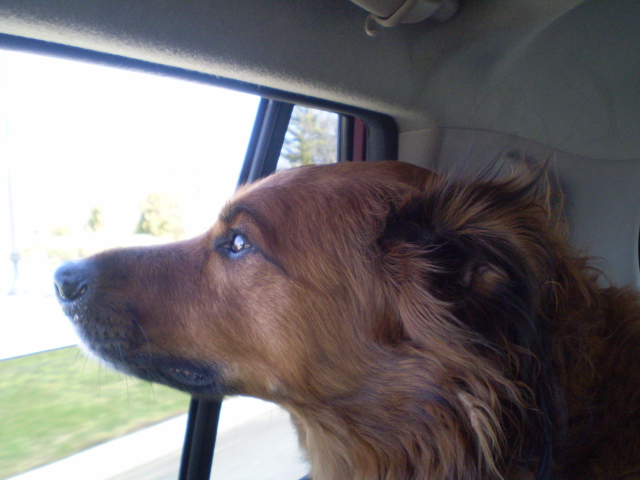 aggressive kids and dogs
QuestionI have a hyper aggressive 6 yr old who always p
aggressive kids and dogs
QuestionI have a hyper aggressive 6 yr old who always p
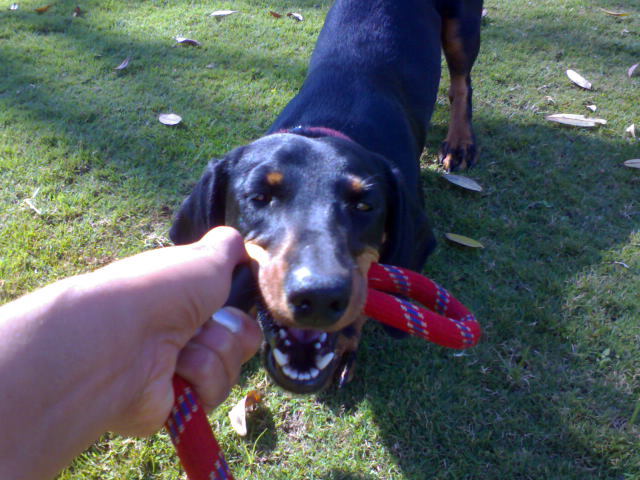 Dog unwilling to eat
Question
Maggie
I have a 4 year old daschund female.She
Dog unwilling to eat
Question
Maggie
I have a 4 year old daschund female.She
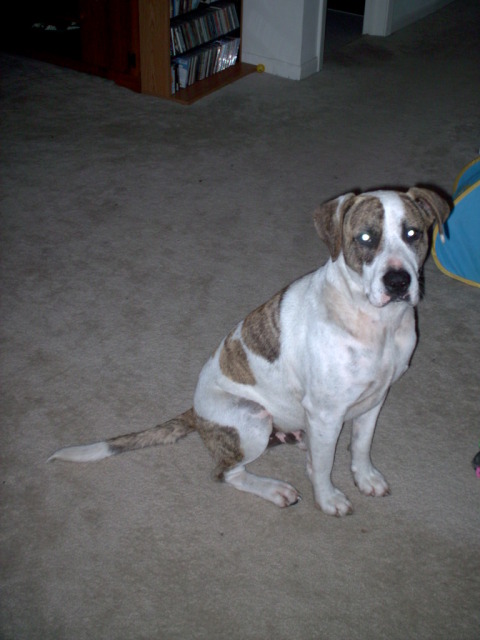 dog jumping fence
Question
dog
I have a 3 year old Staffordshire/Lab that
dog jumping fence
Question
dog
I have a 3 year old Staffordshire/Lab that
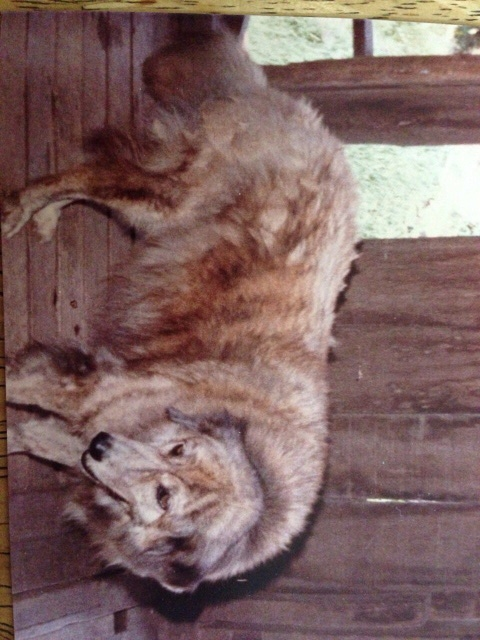 Identifying the breed
Question
Unknown Dog
Greetings Patti, I would li
Identifying the breed
Question
Unknown Dog
Greetings Patti, I would li
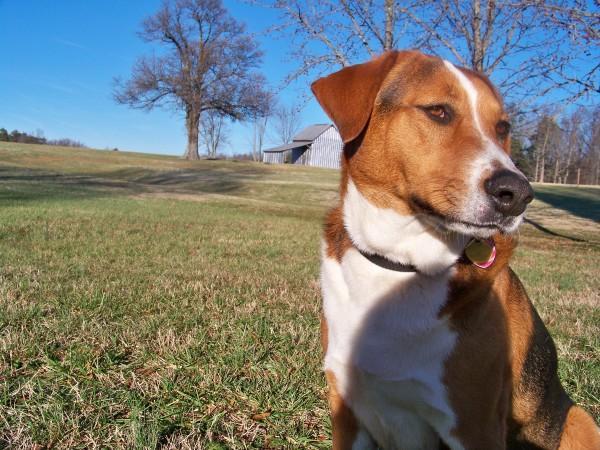 My dogs agression
Question
This is my dog
Hi Shelley!
I have a question f
My dogs agression
Question
This is my dog
Hi Shelley!
I have a question f